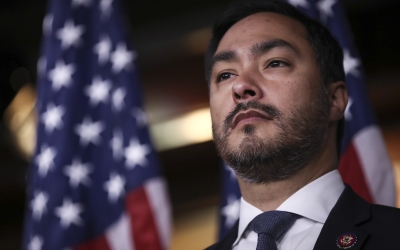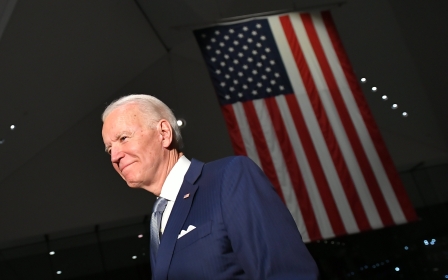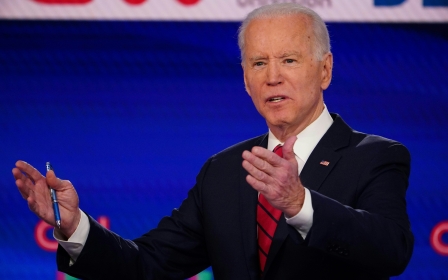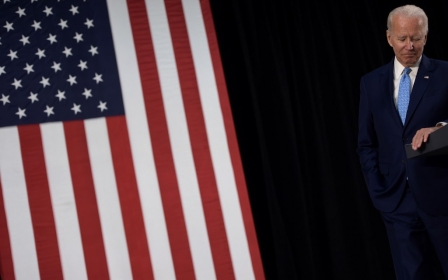Biden campaign holds private meeting with Palestinian-American activists
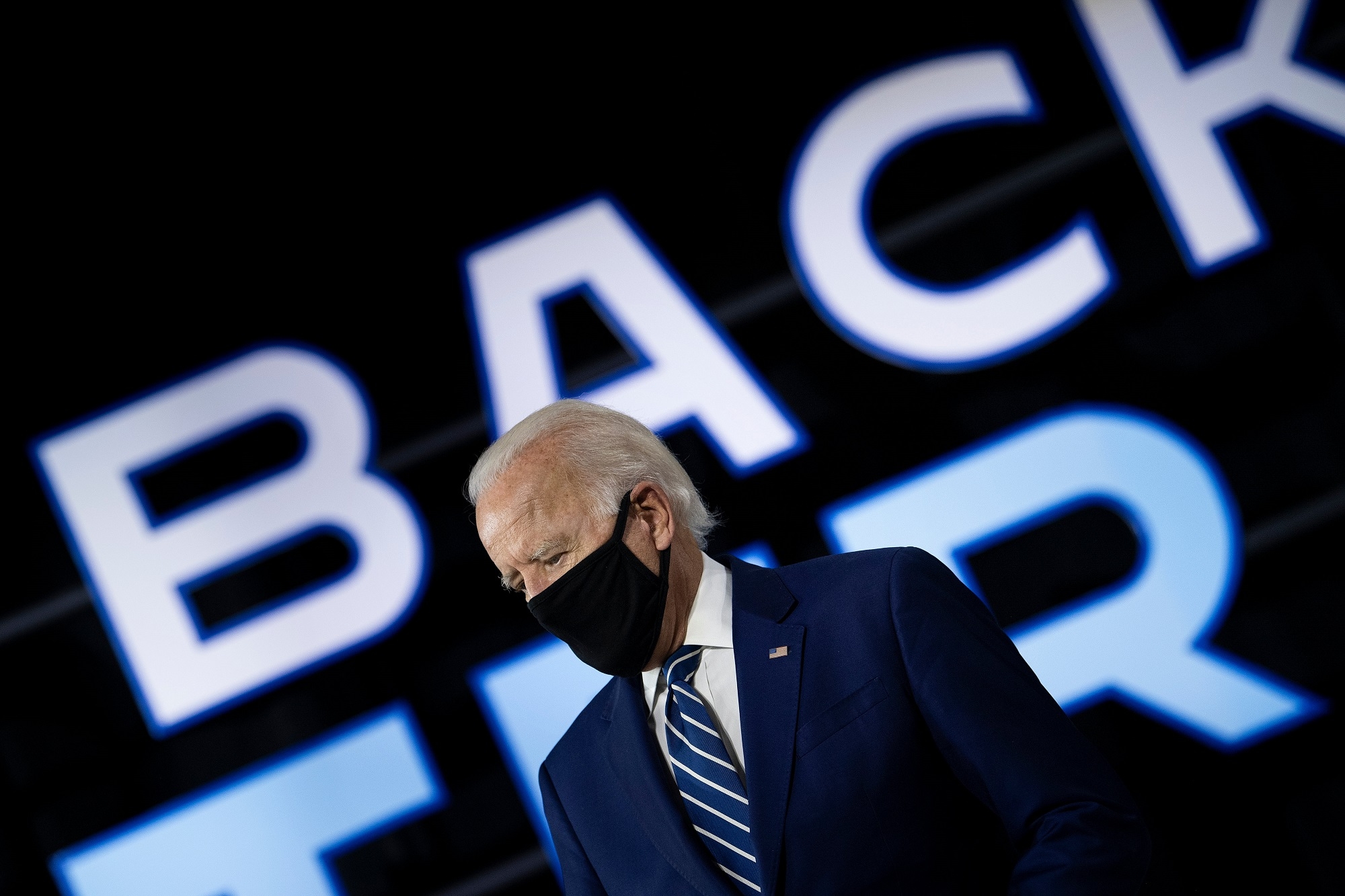
Joe Biden's presidential campaign held a private virtual meeting with Palestinian-American activists on Tuesday, several sources familiar with the call confirmed to Middle East Eye.
Tony Blinken, a top campaign adviser, drew a "contrast between Donald Trump and Joe Biden" and during the call he re-asserted previous statements on opposing Israeli annexation plans, said one of the attendees, who spoke on condition of anonymity because the meeting was off the record.
"However, when it comes to what a Biden administration would do differently from Obama's failed approach to peace-making, the campaign was evasive and would not commit to any real accountability or consequences for Israel's ongoing crimes against Palestinians," the source said.
'The campaign was evasive and would not commit to any real accountability or consequences for Israel's ongoing crimes against Palestinians'
- A source who was on the call
According to the attendee, Blinken said that Biden would reverse some of Trump's anti-Palestinian measures, reiterating support for the two-state solution.
Biden has previously pledged to resume financial assistance for Palestinians that had been frozen by Trump, and to restore Palestinian diplomatic representation in Washington.
New MEE newsletter: Jerusalem Dispatch
Sign up to get the latest insights and analysis on Israel-Palestine, alongside Turkey Unpacked and other MEE newsletters
The meeting came as the Biden campaign continues to reach out to Arab and Muslim voters and various ethnic and religious communities ahead of the election in November.
Status quo
In an address to the Muslim-American political advocacy group Emgage on Monday, Biden touched briefly on the situation in Israel and Palestine, vowing to "champion the rights of Palestinians and Israelis to have a state of their own".
The former vice president also said he would work in "close cooperation" with Washington's partners to "meet the moral demands of the humanitarian crisis in Syria, Yemen and Gaza".
While some activists have lauded Biden's outreach efforts, many Palestinian-American advocates say the campaign has not done enough to address policy questions around the conflict.
Earlier this month, Blinken held a public call with Arab-American activists during which he struggled to answer how a Biden administration would work to change the pre-Trump status quo in the Palestinian territories.
"It's a fundamental question, and one we're thinking very hard about even in the context of the campaign as we think about the possibility of an administration," Blinken said at the virtual meeting on 9 July.
"I don't have a magic solution or a light-switch answer because I think things are so far removed right now from the prospect of two states that honestly in the first instance, we need a period of do-no-harm.
"And then if we get a period of do-no-harm, we need, I think, a period of what you'd probably call very incremental progress to try to build back an environment in which the prospect of actually negotiating on the issues that need to be negotiated is possible."
Invitation-only
Attendees of this week's off-the-record meeting required a "non-transferable invitation" directly from the campaign, according to an email seen by MEE.
"The call will provide an important opportunity for us to hear from you, take your feedback, ideas and advice, as well as update you on the latest from the campaign," the invitation said.
It was not clear what criteria was used to identify the activists who received invitations. Biden's campaign did not respond to MEE's request for comment.
The source from Tuesday's meeting said Blinken emphasised "values" and "human dignity" and repeated the campaign's stance on opposing the Boycott, Divestment and Sanctions (BDS) movement while respecting the right to free speech.
Last month, several Palestinian-American activists walked out on a virtual meeting hosted by Biden's Muslim outreach manager, demanding a call with Blinken.
Public opinion polls show Biden as leading against Trump by a significant margin both nationally and in battleground states. Arab and Muslim activists say their votes can affect the outcome of the race in key states needed to win the presidency, including in Michigan.
Middle East Eye delivers independent and unrivalled coverage and analysis of the Middle East, North Africa and beyond. To learn more about republishing this content and the associated fees, please fill out this form. More about MEE can be found here.


